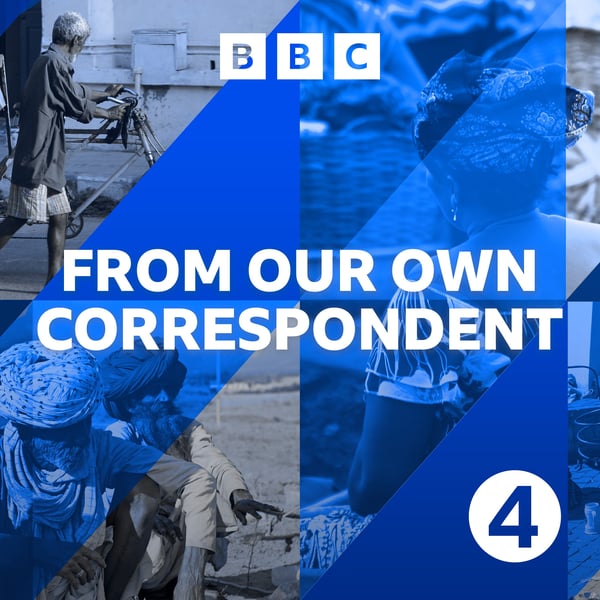Surviving 'chemical detention' in Belarus
From Our Own Correspondent
BBC
4.4 • 1.3K Ratings
🗓️ 28 March 2024
⏱️ 29 minutes
🧾️ Download transcript
Summary
Kate Adie introduces stories from Belarus, Senegal, the US-Mexico border, Cambodia and Brazil.
Political prisoners in Belarus attract less international attention than those in Russia - but there are far more of them, even in a smaller country. Many are women, held in a kind of house arrest known as 'chemical detention', under stringent rules which control their every move. Monica Whitlock gathered testimony from some living under these conditions.
After months of political turbulence, Senegal eventually did hold its planned presidential election - and the popular vote brought Africa's youngest leader, 44-year-old Bassirou Diomaye Faye, to power. James Copnall reported on the final days of the campaign and reflects on how Senegalese democracy proved itself.
Controlling migration to the United States will be one of the most contentious issues in this November's American presidential election. Amid talk of a crisis, and after record numbers of apprehensions of undocumented migrants by the US Border Patrol in December, Tim Mansel visited the border between Mexico and Arizona.
Sand might seem as a cheap and almost inexhaustible resource - but far from it. With the world using up more than 50 billion tonnes of it per year, to make everything from skyscrapers to smartphones, reserves could soon run low. In Cambodia there's now a flourishing black market in illegal sand mining along the banks of the Mekong river, as Robin Markwell has seen.
And Ione Wells, the BBC's new South America correspondent, explores her new base: the industrial megacity of Sao Paulo. Some people call it 'Rio's ugly sister', but she's found much to appreciate amid its high-rise sprawl.
Transcript
Click on a timestamp to play from that location
| 0:00.0 | BBC Sounds, music radio podcasts. |
| 0:05.0 | Today, desperate choices on the border between Mexico and the United States, |
| 0:11.0 | where a sign showing where to find water can mean the difference between life and |
| 0:15.2 | death. What it was like to report on the election in Senegal, which has just brought West Africa's |
| 0:21.6 | youngest president to power. How illegal sand mining in Cambodia |
| 0:26.4 | is feeding a construction boom and undermining the banks of the |
| 0:33.2 | meekong river and the hidden joys of living in Sao Paulo, the industrial |
| 0:36.2 | mega city in Brazil which many people derived as Rio's ugly sister. |
| 0:41.0 | Still our correspondence come to appreciate its particular charm. |
| 0:46.9 | But first to Eastern Europe, since the death of the opposition leader Alexei Navalny in an Arctic penal colony the world is all too aware |
| 0:55.4 | of what can happen to those who express dissenting views in Russia but lesser known |
| 1:00.8 | are the political prisoners in Belarus who attract far less international |
| 1:05.3 | attention. Nonetheless, a policy of mass arrest there means Belarus has a much larger |
| 1:11.8 | number of political prisoners than Russia, despite being a far smaller country. |
| 1:17.0 | Many of these detainees are women living under a special regime of house arrest, commonly known as chemical detention. |
| 1:25.6 | We don't often hear from inside Belarus, given the severe penalties for speaking out, |
| 1:31.3 | but Monica Whitlock has been in touch with women who want |
| 1:34.3 | their story to be heard. |
| 1:36.1 | Dear friends, it's very hard to tell you my thoughts about what's happening here |
| 1:41.6 | in Belarus. These goings on touch all the people |
| 1:45.4 | around me, my relatives, my friends, and my wider circle. So begins a voice note from an elderly woman, a grandmother in Belarus. |
| 1:56.0 | I can't tell you her name or where she lives. |
... |
Please login to see the full transcript.
Disclaimer: The podcast and artwork embedded on this page are from BBC, and are the property of its owner and not affiliated with or endorsed by Tapesearch.
Generated transcripts are the property of BBC and are distributed freely under the Fair Use doctrine. Transcripts generated by Tapesearch are not guaranteed to be accurate.
Copyright © Tapesearch 2025.

